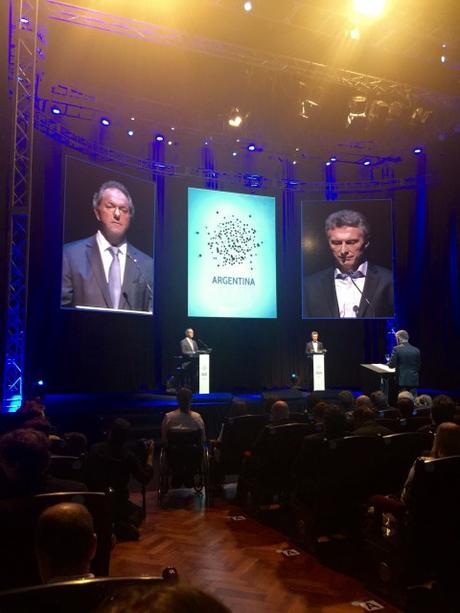
What a difference a month can make! During Argentina’s first presidential candidate debate in October, Daniel Scioli as the government’s candidate appeared to be a shoo-in with voters. A month later at the November debate the tables were completely turned. What happened?
The role of the presidential debates—the first in Argentine history (see my previous post on the first debate)—is difficult to quantify. What we can see is that Scioli paid a heavy political price for not participating in October’s debate. The other candidates made constant references during the debate to the empty podium that referenced his absence. The press also excoriated Scioli’s last minute decision to not participate.
Scioli’s political calculation was no doubt a measure of his lead as a candidate in the opinion polls at the time and a stark cost benefit-analysis of how much he could stand to lose if he performed badly in the debate. After committing to the concept of debates, Cristina Fernandez made this same choice four years ago in her campaign when her polling numbers were high. She was able to get away with the decision and win the presidency. For Scioli, this choice turned out to be a poor one for his candidacy.
Presidential debates are fundamental tool in the democratic election process. They provide the electorate with another way of viewing the candidates for which they will be called on to vote. While the candidates may not present anything particularly new into their public discourse at a debate forum, their performance under pressure of live television cameras provides a better understanding of what those candidates are about and how they perform under duress.
In a country such as Argentina, which has not had presidential debates before, the goal of the project sponsored by Argentina Debate was to raise the political cost of not participating in the process. This is acheived by raising public demand for debates. Until citizens begin to demand that their candidates participate in this process and cast their votes with that participation in mind, then candidates will find a way out.
Fortunately, in Argentina those days have now past. The decisions that paved the road to Mauricio Macri’s inauguration as President of Argentina included his commitment to and participation in the debate process. In future Argentine elections, the role of democratic tool that is a presidential debate will be much more assured.
John Zemko is Regional Director for Latin America & the Caribbean at CIPE. Read a Cuban’s take on the significance of the debate and the election from Mario Felix Lleonart, a fellow with CIPE partner Fundación Libertad.

